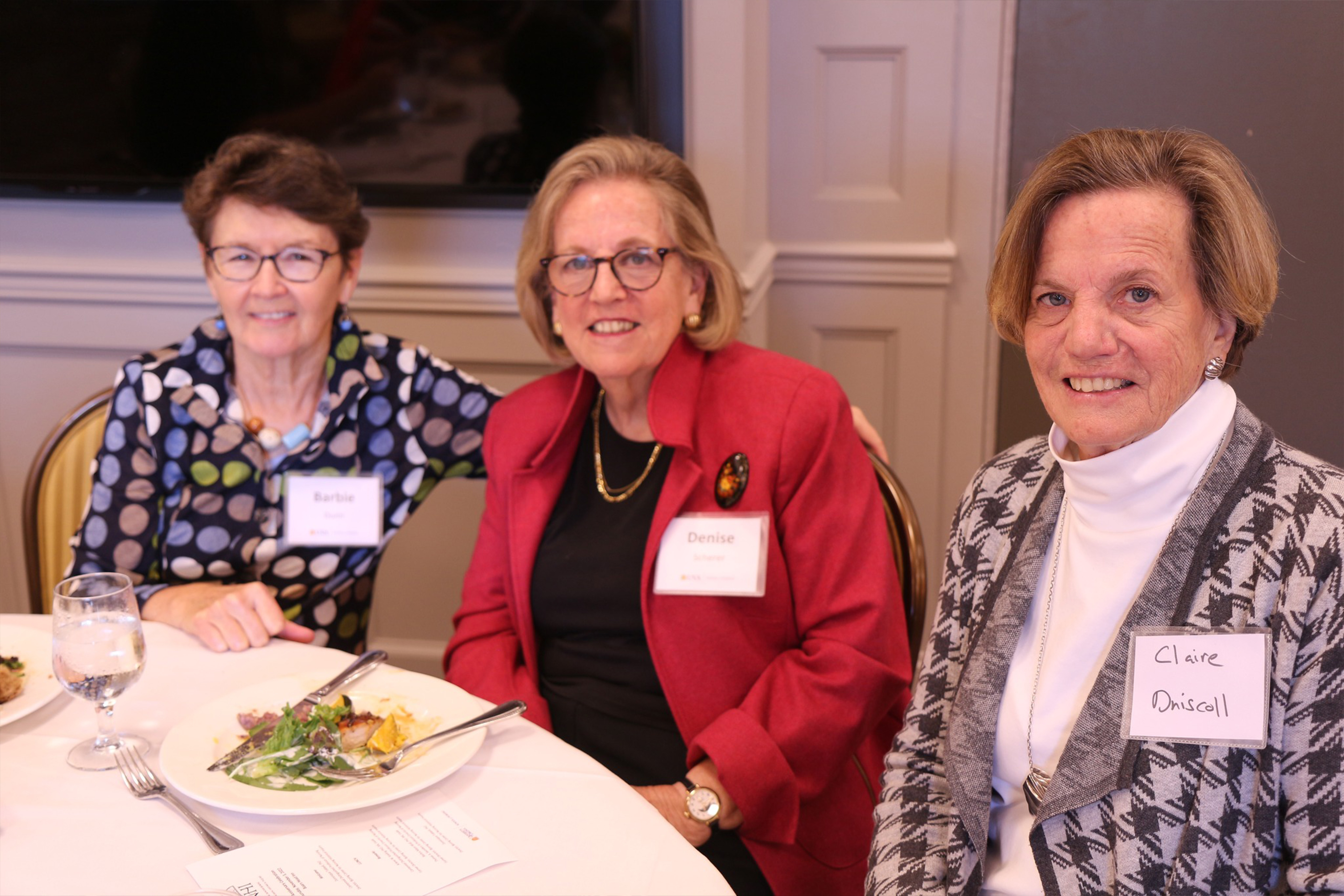
Giving Back to Support the Next Generation of Nursing Leaders
Denise Geolot Sherer (BSN ’70, ENP ’75) knows the difference well-timed support can make.
She’d received federal support for a traineeship to attend UVA’s baccalaureate program in the late 1960s, which meant she could attend school full-time, minimize her need for student loans, and only work occasional holidays at Washington Hospital Center where she’d earned a diploma and practiced on the coronary care unit.
“It was the difference,” Denise recalled from the Silver Spring, MD, home she shares with husband, Chuck. “Without that traineeship and a loan, I’d have had to drop out, work, save money. The financial support I received meant I could attend UVA.”
After graduating from the School of Nursing in 1970, Denise attended the University of Colorado to earn a master’s degree, again with federal support, and soon returned to UVA to teach in the School’s undergraduate program. Along with mentor Barbara Brodie and UVA Hospital emergency physician Dr. Richard Edlich, she established a master’s program for emergency nurse practitioners at UVA—the second of its kind in the United States—and then taught in that program before accepting a job in 1977 in the U.S. Department of Health and Human Services’ nursing division where she managed grant distributions to American nursing schools preparing nurse practitioners. Her experiences, she said, positioned her for subsequent leadership roles in government and nursing graduate education.
Fast forward to today, and the Sherers are paying that support forward by creating an endowed scholarship for nursing students bearing their mothers’ names—what Denise, a key driver of the nurse practitioner movement of the 1970s and 80s, called coming “full circle.”
“I want others to have the same opportunities I had,” she said.


The Muriel Geolot and Madge Higgins Sherer Endowed Scholarship, established with a $100,000 gift, covers tuition and fees for a full-time undergraduate student in the School of Nursing who has completed at least one full year of study. Deserving students will be specially selected for the scholarship by the School, at least one scholarship will be awarded annually, and students may receive the scholarship for no more than three years. The first awardee will be named this coming summer.
Early Nursing Inspiration
Every scholarship has to have a name, and both Denise and Chuck wanted to honor their mothers. Chuck’s mother, Madge Higgins Sherer, volunteered for the American Red Cross and served in England in WWII. After her service, she returned home and taught elementary school in Richmond, VA, where she also volunteered at the McGuire Veterans Hospital.
Denise’s mother, Muriel Geolot, had always encouraged Denise to go into nursing, following in the footsteps of her mother’s younger sister, who’d served as a nurse in the Canadian Navy during WWII and practiced in Australia after the war. Despite the more than 8,000 miles that separated them, the sisters exchanged weekly letters for decades, missives Muriel shared with her children. Denise today still recalls details of her aunt, stunning in military nursing uniform, earning salutes from strangers and being the only woman aboard a military plane that flew over Hiroshima, Japan, shortly after it was bombed in August 1945.
“The respect she received, the people she met, the experiences she had really were inspiring,” Denise said.
“We’re strongly supportive of medical and nursing research, too, but with a scholarship, there’s a person at the other end of it.”
Chuck Sherer
Focusing Support on BSN Students
The Sherers’ decision to support undergraduate students with the new scholarship is pragmatic. In addition to their shared concern about nursing shortages, “We wanted to reduce financial barriers for future nurses and to get them invested in nursing when they’re at the very beginning of their career,” Denise explained.
Besides, she said: you never know how the right support at the right time might inspire someone.
“Being at UVA really caused me to think differently, and practice differently, all of which I think enriched my nursing,” said Denise. “It’s all because of being at UVA and being in the right place at the right time. It’s a full circle. I feel like I’ve had an incredible career and am pleased to be able to help others get the same exceptional education I had.”


